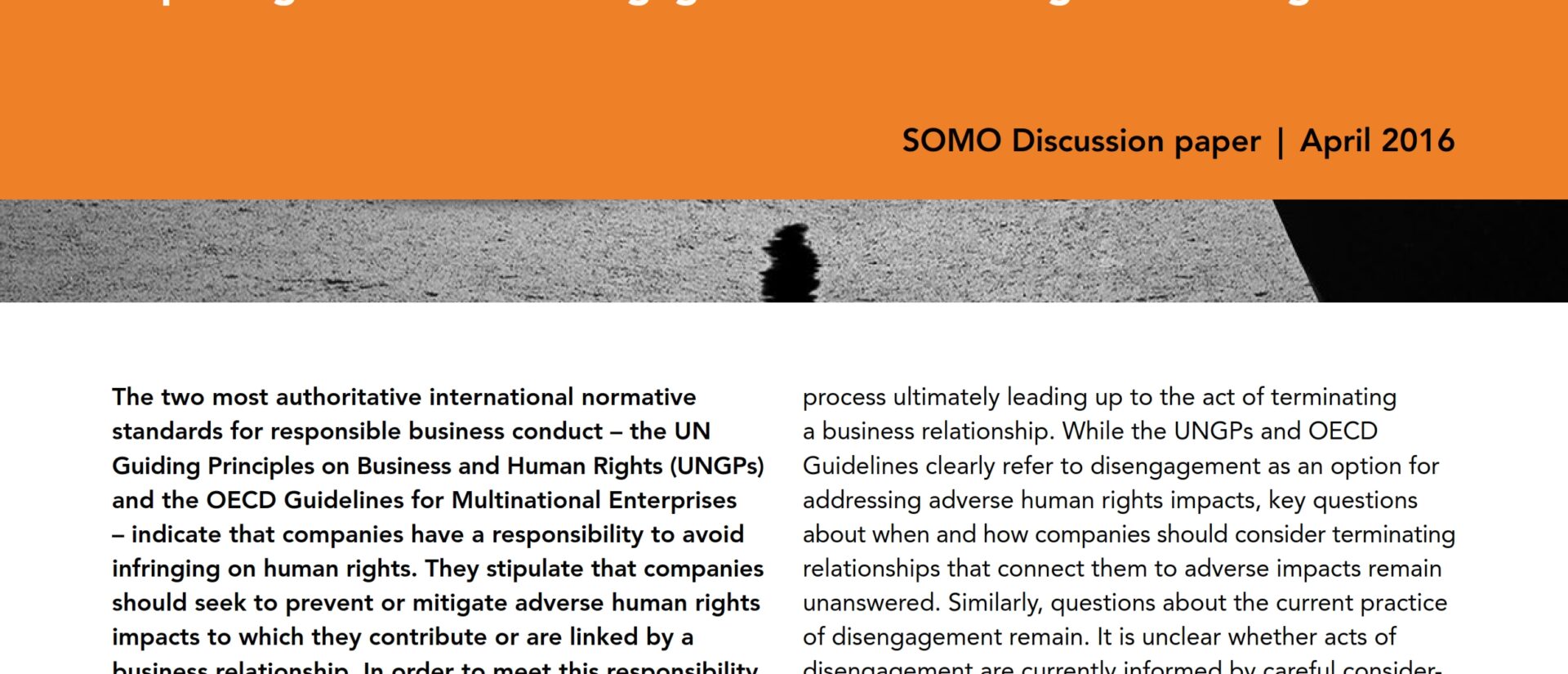
Should I stay or should I go?
Exploring the role of disengagement in human rights due diligence


The two most authoritative international normative standards for responsible business conduct – the UN Guiding Principles on Business and Human Rights (UNGPs) and the OECD Guidelines for Multinational Enterprises – indicate that companies have a responsibility to avoid infringing on human rights.
They stipulate that companies should seek to prevent or mitigate adverse human rights impacts to which they contribute or are linked by a business relationship.
In order to meet this responsibility, companies should conduct human rights due diligence. In practice this means that companies should engage with business partners and use their leverage to prevent, mitigate and remediate adverse impacts.
However, if these efforts fail, companies are faced with the question whether, when and how to end the business relationship connecting them to the adverse impact. In these circumstances, the decision on whether or not to disengage from a problematic business relationship becomes a key consideration within the human rights due diligence process.
This adds a new degree of significance and complexity to the age-old question put so succinctly by The Clash: Should I stay or should I go?
Do you need more information?
-

Joseph Wilde-Ramsing
Advocacy Director
Publication


Related content
-

-
Conflict Due Diligence by European Companies Published on:
 Gisela ten KatePosted in category:Publication
Gisela ten KatePosted in category:Publication Gisela ten Kate
Gisela ten Kate
-
Human Rights and Grievance Mechanisms Published on:J. OldenzielPosted in category:PublicationJ. Oldenziel
-
-
 Behavioural guidelines for companies for approval to the UN Human Rights CouncilPosted in category:NewsPublished on:
Behavioural guidelines for companies for approval to the UN Human Rights CouncilPosted in category:NewsPublished on: -
 How to use the UN Guiding Principles on Business and Human Rights in company research and advocacyPosted in category:NewsPublished on:
How to use the UN Guiding Principles on Business and Human Rights in company research and advocacyPosted in category:NewsPublished on: -
How to use the UN Guiding Principles on Business and Human Rights in company research and advocacy Published on:Ricco, V.Posted in category:PublicationRicco, V.


